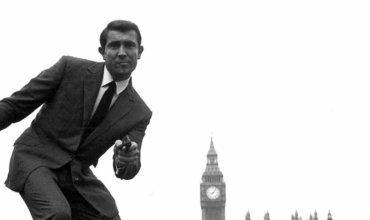In 1966, Francis Chichester sailed from Plymouth in the United Kingdom and circumnavigated the globe in 226 days with one stop (Sydney). This feat captured world attention and the hunt was soon on to find someone to sail around the world solo with no stops. In 1968, the UK’s Sunday Times launched a competition to encourage this new potential world record and called it the Golden Globe Race. Amateur sailor Donald Crowhurst (Colin Firth) was seized by the dream of doing something no one else had achieved, so with no consultation with his family, he applied to enter the race.
His wife Clare Crowhurst (Rachel Weisz), was a reluctant supporter of the idea. She didn’t feel Donald’s weekend sailing skills were sufficient, he didn’t have a vessel capable of travelling the distance, nor did she want him to be absent from her and their children’s lives for, at minimum, nine months. Worst of all, she feared the dangerous journey could end his life.
In its first half, THE MERCY focusses on Donald putting together the money, marketing and equipment for his race bid. Very slowly his ship, a trimaran called the Teignmouth Electron, takes shape. The name Teignmouth is for the harbour where his journey will begin and “Electron” is for his electronics business which so far has produced a not-very-successful navigation device. Donald doesn’t make a great deal of money, so beyond the dream of being a record-breaking adventurer he also has a fantasy of the subsequent fame leading to greater financial success. He employs a publicity man (played by David Thewlis) and his race bid, which includes the construction of the trimaran, is bank-rolled by a local businessman (played by Ken Stott).
As the days pass, the publicity for Donald’s upcoming journey grows. There are press ads, magazine stories and even a television piece featuring Clare. However setbacks with the testing of the trimaran dents Donald’s confidence. He can pull out of this situation at any time, but what began as a dream to do something truly great, has slowly turned into a seemingly crazy idea. He is not sure he is ready to take on the challenge. He sticks to his plan largely because he fears the humiliation of giving up. Clare would like nothing better than for Donald to abandon his dream and stay safely at home.
Director James Marsh from a script by Scott Z. Burns creates a picture of cosy, prosperous Britain that might appeal to some Britons now. Donald at home, apparently relaxing, is often portrayed in a cardigan and a tie. When he speaks to his children he is kindly, but also very clearly the head of the family. He has a patrician air about him and often seems to be in an educative mode. Both he and Clare have quite scholarly diction. Later on, this portrait of a man who knows his place in society, is put to the test by the relentless challenges of the race.
As you might expect, THE MERCY spends much of its second half with Donald out at sea. The literal distance between Clare and Donald is well dramatised. Weisz and Firth are very watchable in their roles. They both go on their own inner journeys paralleling Donald’s actual circumnavigation. Clare has to deal with her children, the media and her fears. The intermittent communication between the couple is difficult for them both. Donald has to deal with a boat that doesn’t work as planned, extreme conditions and the sheer loneliness of his solo mission.
THE MERCY as a piece of storytelling is well-made in all departments. It’s a serious film about a real-life harrowing experience. It raises questions about whether risking oneself for a dream is an act that an individual with a family should pursue. The film’s run time is 112 minutes. (7/10)


